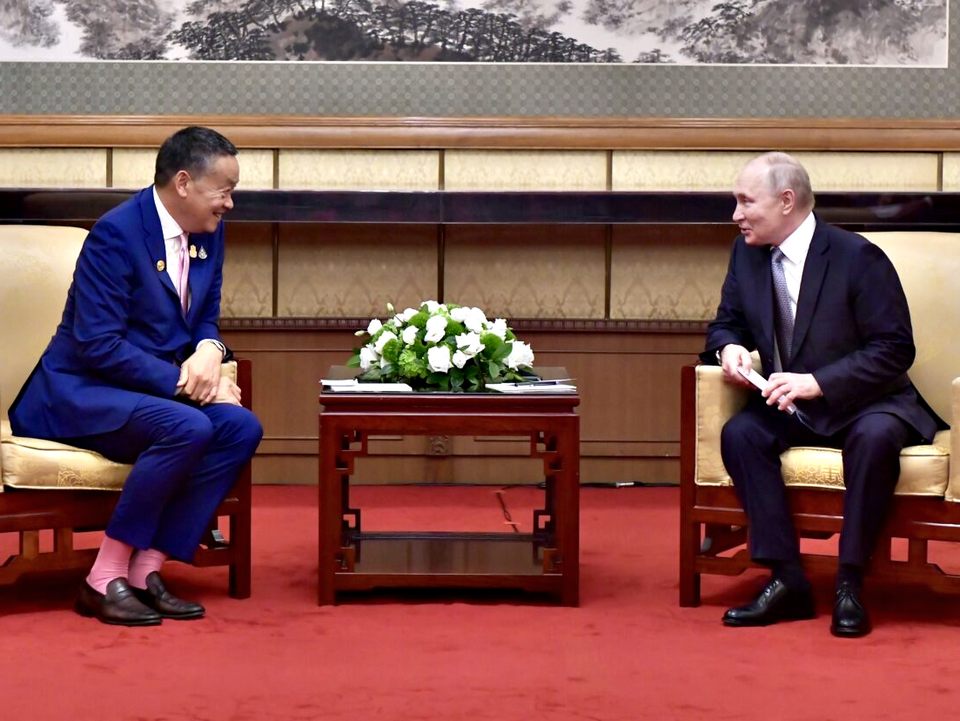
Prime Minister Srettha Thavisin’s recent journey to the international gathering at the Beijing National Convention Center is a very significant effort to expand economic links between Thailand and its major trading partners China and Russia. The latest Thai immigration news, which abolishes visas for Chinese and Russian tourists on a trial basis, is certainly part of that policy. Chinese citizens can enter Thailand visa-free for 30 days which can be extended 30 days more at Thai immigration. Russian nationals next month will have the same visa-free opportunity for 90 days, a rare privilege formerly extended only to South Korea and a handful of Latin American countries. Both president Xi and president Putin said they were well pleased with the immigration move.
Srettha is keen to expand the numbers of Russian visitors to Thailand which exceeded one million in the past twelve months. He discussed with the Russian leader programmes for national security cooperation and trade although no details were published. Significantly, Putin was invited for an official visit to Thailand next year which he accepted at a date to be soon agreed. Although the Russian leader has an international warrant out for his arrest on allegations of abducting Ukrainian children, Thailand does not subscribe to the international criminal court’s Rome statute as her “signing” has not yet been given “ratification” by Bangkok. It is rare for Putin to receive such a visit invitation from a formally non-aligned country and speaks volumes about a new direction in Thai foreign affairs.
Thailand’s new links with China are likely even more significant. In particular, Thailand wants to carry out a 1 trillion-baht mega Land Bridge project in the South to link the Gulf of Thailand to the Andaman Sea, a distance of 89 kilometers, which could fit handily with China’s international Belt and Road Initiative. The Chinese government has already expressed interest and will hold talks with Bangkok’s Board of Investment. China is also the main foreign investor in the Eastern Economic Corridor, a high-tech development in three central provinces of Thailand.
Critics say that Thailand needs to tread carefully as an informal alliance with Russia could in future rebound negatively in all sorts of directions, including further falls in western tourism to the Land of Smiles, whilst many countries have found that economic deals with China can leave them in permanent debt. For example, Cambodia is seen by some economists as now dependent on China for all macro-economic moves as exemplified by the building of two new airports by Chinese companies on a lease basis. But Thai government supporters say that Thailand must adapt to the realities of the 2020s and accept that western tourism and investment are no longer the pull in south east Asia they were in the past. The Pheu Thai prime minister has made a bold move in tying immigration policy so closely to potential economic advantage.






